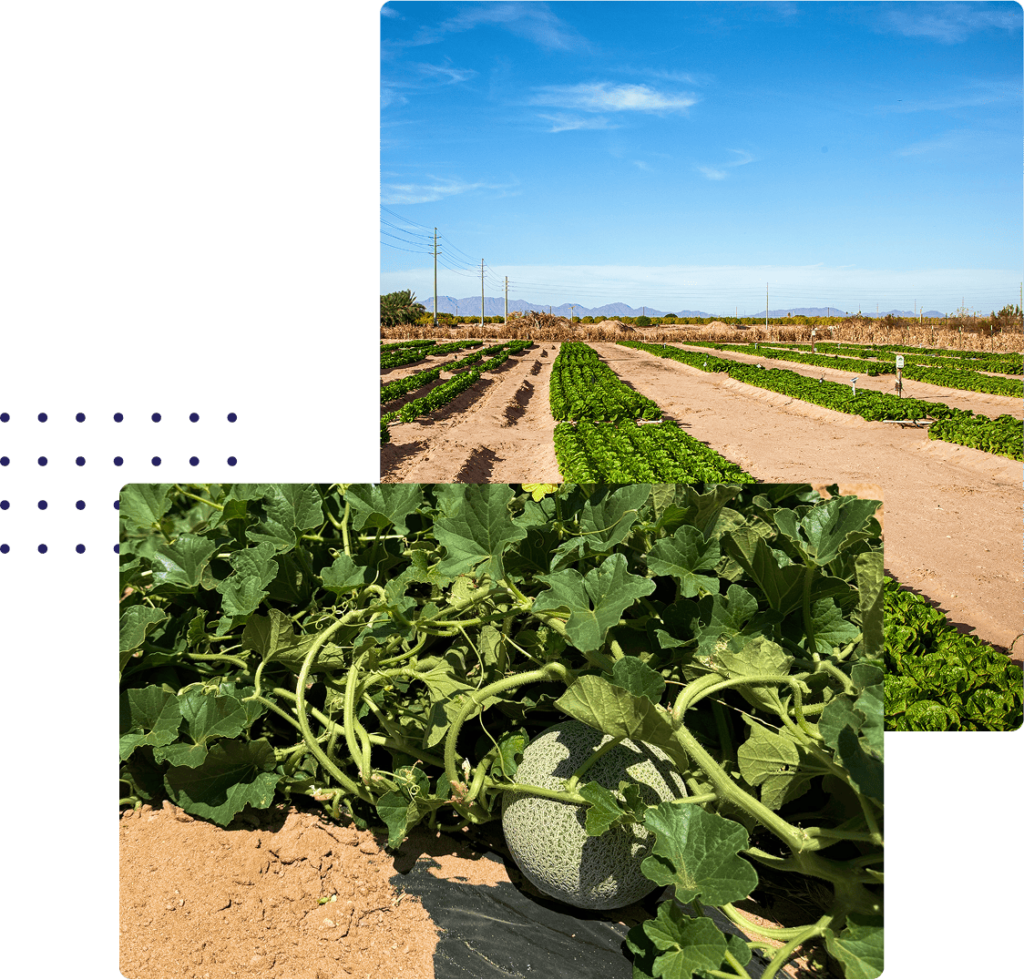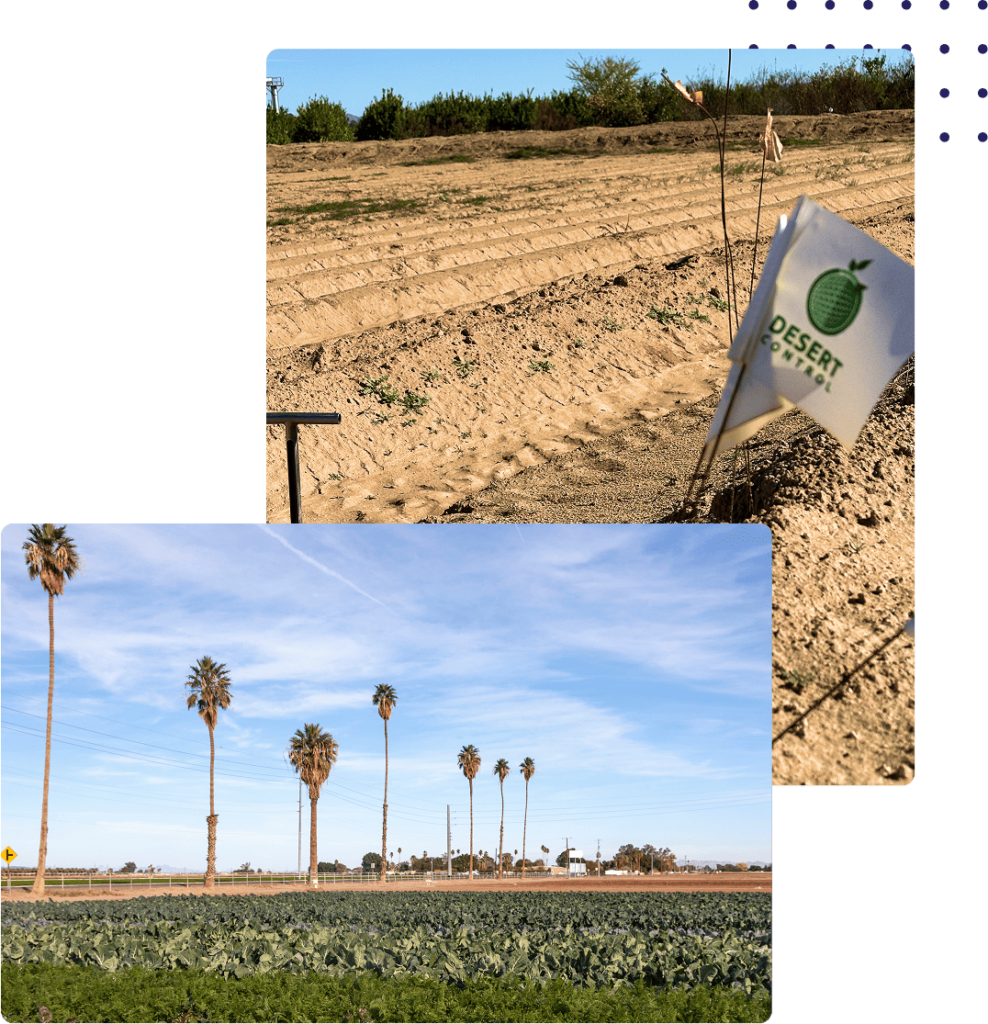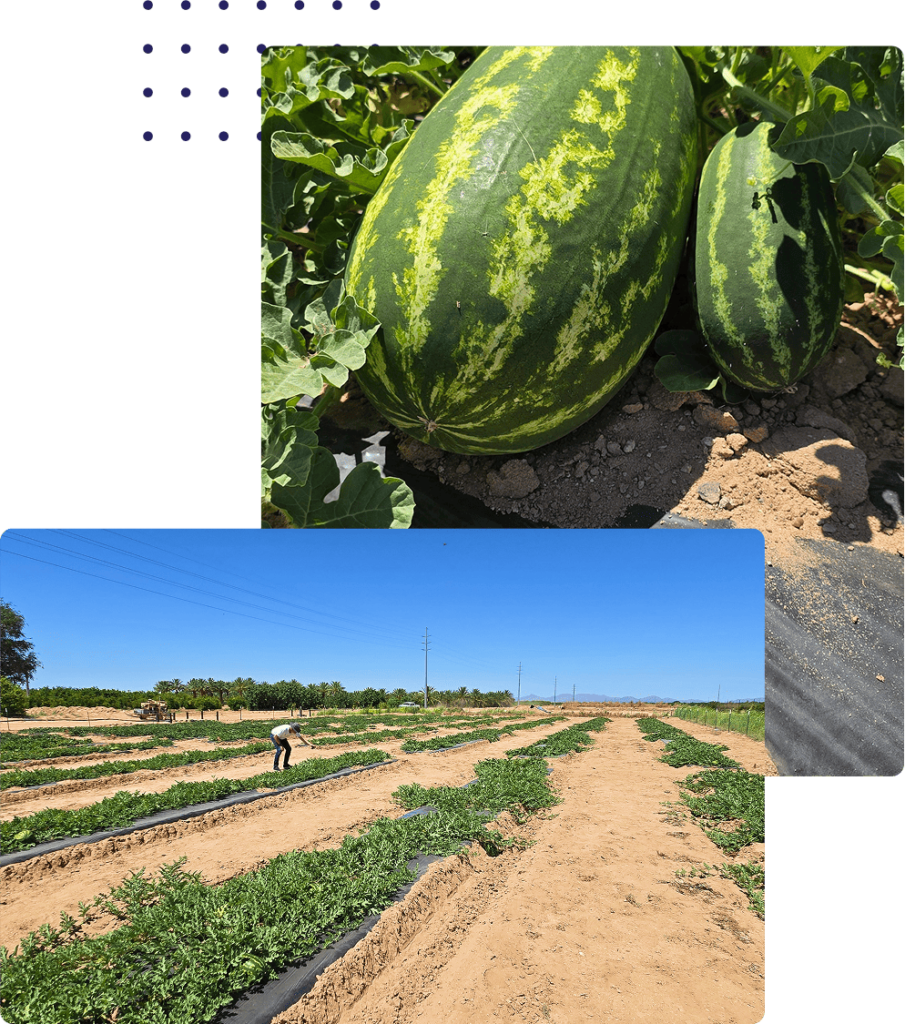MIDTERM STUDY
Midterm Study of the University of Arizona 5-Year Trial with Liquid Natural Clay (LNC)
Desert Control’s five-year collaboration with the University of Arizona provides independent validation for Liquid Natural Clay (LNC) as a scalable solution for reducing irrigation needs, improving soil health, and increasing crop productivity in arid conditions. Since 2022, the program has evaluated LNC across multiple crop cycles, irrigation strategies, and soil conditions, generating valuable insights for commercialization.
KEY MIDTERM FINDINGS
Water Efficiency & Soil Improvement
LNC helps soils retain water longer, offering similar or higher yields for LNC treated vs control plots at reduced irrigation volumes (20-50% less) and also for reduced irrigation frequencies (from every 2 to every 3 days).
Yield Gains Across Multiple Crops
Recent crop cycles of the trials have demonstrated up to 32% higher cotton yields and 56% higher celery yields, underscoring LNC’s potential to enhance crop resilience in dry climates.
Economic & Market Potential
LNC shows potential to enable high-value crop cultivation on lower-value land, potentially increasing farmland value and strengthening grower profitability.
Organic Certification & Market Expansion
LNC is OMRI-certified for organic farming, unlocking opportunities in the fast-growing organic agriculture sector.
Challenges & Next Steps

Scalability & Large-Scale Validation
While small-sized field trials demonstrate LNC’s potential, the next phase will focus on aspects relevant to larger-scale commercial adoption, ensuring practical application insights for growers.

Longevity Studies & Suitability for Different Cultivation Practices
LNC’s long-term impact in agricultural systems with frequent tillage is still being evaluated, as continuous soil disturbance may influence effectiveness over time. However, LNC’s potential for permanent crops and no-till farming confirms a solid value proposition, given these systems’ long-term soil structure stability. While not part of the University of Arizona study, Desert Control is conducting multiple pilot programs and commercial deployments in this sector, with university personnel involved in some of these efforts.

Economic Case for Adoption
While water costs remain a key factor in the financial case for LNC adoption, yield improvements and land enhancement alone can provide a compelling business case, even in regions where water is inexpensive. For high-value permanent crops (lifespan of 20-30 years), the ability to improve soil health and water efficiency delivers long-term economic benefits, strengthening LNC’s value proposition in markets where farmers make long-term investments in soil productivity.

Customization & Market Adaptation
The study has shown that specific formulations of LNC perform better than others under different conditions, which initially appeared as a challenge but is now emerging as a competitive advantage. LNC’s on-site production technology allows real-time customization based on local soil, water, and crop conditions, making it highly scalable for agriculture, landscaping, and urban sustainability applications.
Strategic Outlook
The midterm results show strong potential for LNC to transform sandy soils into productive, high-value farmland. The continuation of the five-year study will further validate LNC’s impact, strengthen its value proposition, and provide additional commercial insights for large-scale adoption.

